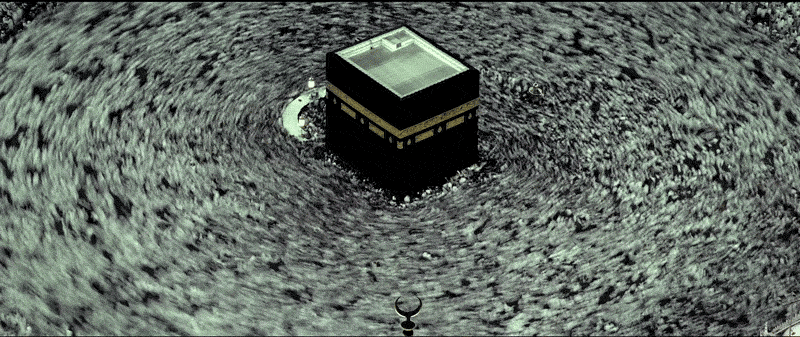بسم الله الرحمن الرحيم
Assalamu Alaikum.
In Part 1, I discussed what Hajj and Umrah were and why and how to do them. In this part, I’m going to discuss the importance of Hajj and Umrah, along with the conditions of Hajj.
There’s also a discussion about hastening Hajj.
Pictures, you say? Yes, there are – at the end of this article.
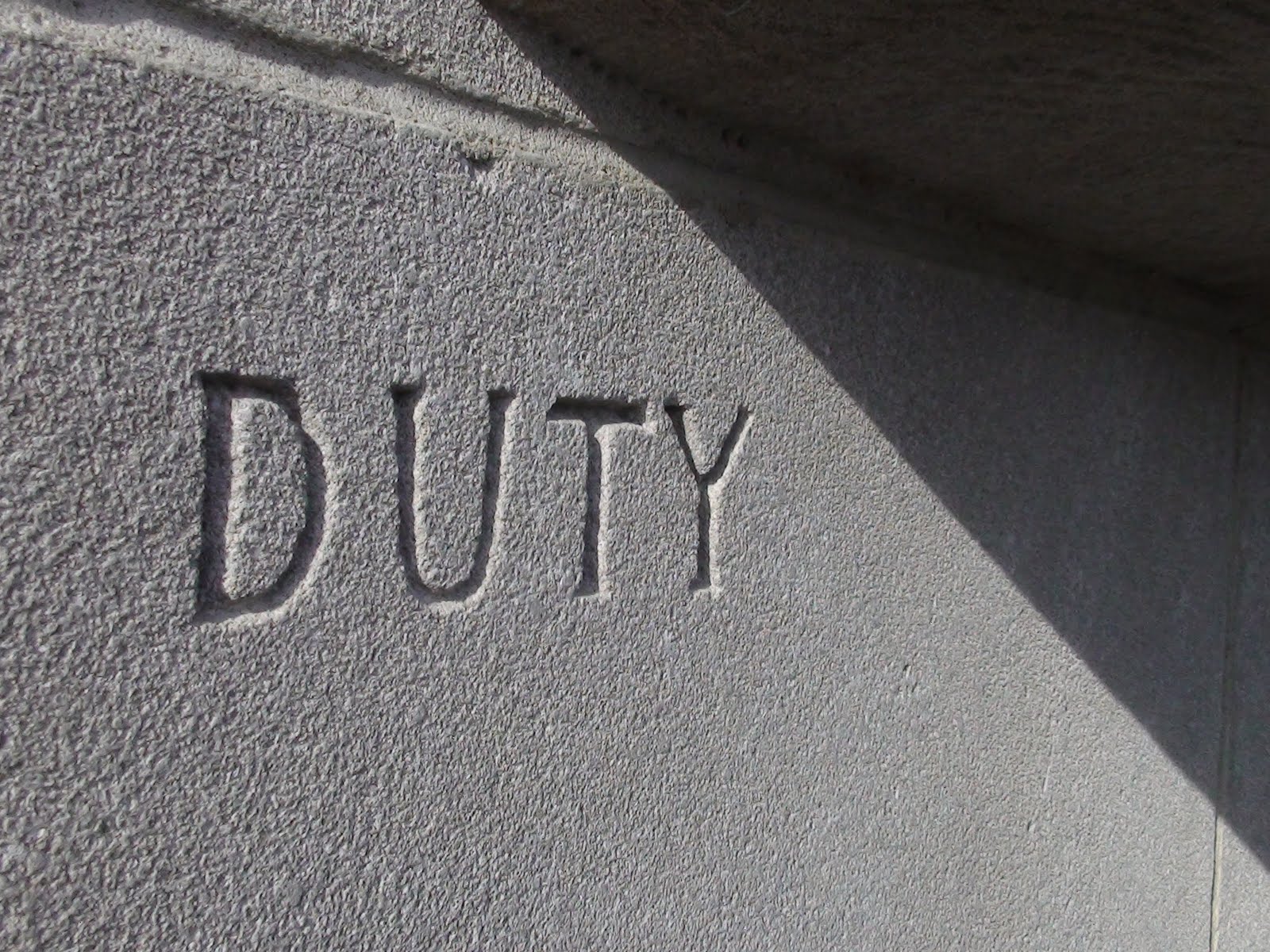
THE OBLIGATION AND IMPORTANCE OF HAJJ
Everyone knows that Hajj is obligatory once in a lifetime (for those who can do it) but most people don’t know how important it really is. The way one approaches an important task is not the same way one approaches an unimportant one.
In order to truly appreciate the magnificence of Hajj, every Muslim needs to understand how important it really is. Its obligation has been stated in many places and in many ways in both the Quran and the Sunnah. Knowing the great status of Hajj can really change how one views this great journey and how one goes about preparing for it.
1. It is a duty that mankind owes to Allah
إِنَّ أَوَّلَ بَيْتٍ وُضِعَ لِلنَّاسِ لَلَّذِي بِبَكَّةَ مُبَارَكًا وَهُدًى لِّلْعَالَمِينَ
فِيهِ آيَاتٌ بَيِّنَاتٌ مَّقَامُ إِبْرَاهِيمَ ۖ وَمَن دَخَلَهُ كَانَ آمِنًا ۗ وَلِلَّـهِ عَلَى النَّاسِ حِجُّ الْبَيْتِ مَنِ اسْتَطَاعَ إِلَيْهِ سَبِيلًا ۚ وَمَن كَفَرَ فَإِنَّ اللَّـهَ غَنِيٌّ عَنِ الْعَالَمِينَ
“Verily, the first House (of worship) appointed for mankind was that at Bakkah (Makkah), full of blessing, and guidance for Al-Alameen (the mankind and jinns). In it are manifest signs (for example), the Maqam of Ibrahim; whosoever enters it, he attains security. And Hajj to the House is a duty that mankind owes to Allah, those who can afford the expenses; and whoever disbelieves [i.e. denies Hajj, then he is a disbeliever of Allah], then Allah stands not in need of any of the Alameen (mankind and jinns).” [Surah Aal-Imran (3) : 96 – 97]
This ayah (verse) is proof that whoever denies the obligation of Hajj is a disbeliever, and this is something that the scholars agreed upon (i.e. whoever denies the obligation of Hajj is no longer a Muslim).
Note: There is a big difference between denying the obligation of Hajj and not going to Hajj even when one has the ability, due to laziness. The former is a disbeliever whereas the latter has committed a major sin.
2. Ibrahim (alaihissalaam) was ordered to proclaim the Hajj to mankind
وَإِذْ بَوَّأْنَا لِإِبْرَاهِيمَ مَكَانَ الْبَيْتِ أَن لَّا تُشْرِكْ بِي شَيْئًا وَطَهِّرْ بَيْتِيَ لِلطَّائِفِينَ وَالْقَائِمِينَ وَالرُّكَّعِ السُّجُودِ
وَأَذِّن فِي النَّاسِ بِالْحَجِّ يَأْتُوكَ رِجَالًا وَعَلَىٰ كُلِّ ضَامِرٍ يَأْتِينَ مِن كُلِّ فَجٍّ عَمِيقٍ
لِّيَشْهَدُوا مَنَافِعَ لَهُمْ وَيَذْكُرُوا اسْمَ اللَّـهِ فِي أَيَّامٍ مَّعْلُومَاتٍ عَلَىٰ مَا رَزَقَهُم مِّن بَهِيمَةِ الْأَنْعَامِ ۖ فَكُلُوا مِنْهَا وَأَطْعِمُوا الْبَائِسَ الْفَقِيرَ
“And (remember) when We showed Ibrahim the site of the House (saying): “Associate not anything (in worship) with Me, and sanctify My House for those who circumambulate it, and those who stand up for prayer, and those who bow (submit themselves with humility and obedience to Allah), and make prostration (in prayer, etc.);” And proclaim to mankind the Hajj. They will come to you on foot and on every lean camel, they will come from every deep and distant (wide) mountain highway (to perform Hajj). That they may witness things that are of benefit to them (i.e. reward of Hajj in the Hereafter, and also some worldly gain from trade, etc.), and mention the Name of Allah on appointed days (i.e. 10th, 11th, 12th, and 13th day of Dhul-Hijjah), over the beast of cattle that He has provided for them (for sacrifice). Then eat thereof and feed therewith the poor who have a very hard time.” [Surah Al-Hajj (22) : 26 – 28]
Some of the points of benefit gained from the above ayah are as follows:
– There is a prediction in this ayah which has come true. It says:
يَأْتُوكَ رِجَالًا وَعَلَىٰ كُلِّ ضَامِرٍ يَأْتِينَ مِن كُلِّ فَجٍّ عَمِيقٍ
“They will come to you on foot and on every lean camel, they will come from every deep and distant (wide) mountain highway (to perform Hajj).”
However, at the time when this was revealed, the people did not come from that far. In fact, it is only in the last century or so when people started coming to Hajj from all over the globe, that this prediction has come true. This is something to ponder over.
– One of the wisdoms of going to Hajj is to witness some things that will be of benefit to us.
– One can eat from the animal that he/she has sacrificed. It seems that some people actually debate over the permissibility of this?? This ayah is enough proof that one can do so.
3. It is the fifth of the five pillars of Islam
عَنِ ابْنِ عُمَرَ، عَنِ النَّبِيِّ صلى الله عليه وسلم قَالَ : بُنِيَ الإِسْلاَمُ عَلَى خَمْسَةٍ عَلَى أَنْ يُوَحَّدَ اللَّهُ وَإِقَامِ الصَّلاَةِ وَإِيتَاءِ الزَّكَاةِ وَصِيَامِ رَمَضَانَ وَالْحَجِّ . فَقَالَ رَجُلٌ الْحَجِّ وَصِيَامِ رَمَضَانَ قَالَ لاَ . صِيَامِ رَمَضَانَ وَالْحَجِّ . هَكَذَا سَمِعْتُهُ مِنْ رَسُولِ اللَّهِ صلى الله عليه وسلم
It is narrated on the authority of (Abdullah) the son of Umar (radiallahu anhuma) that the Prophet (sallallahu alaihi wasallam) said: “Islam is built on five (pillars): the tawheed of Allah, the establishment of prayer, payment of zakaah, the, fast of Ramadan, and the Hajj.”
A man said (to Abdullah ibn Umar ): “Hajj and (then) the fast of Ramadan (in order of importance)? ” He (ibn Umar) said: “No, the fast of Ramadan and (then) the Hajj (but) that is how I heard it from the Messenger of Allah (sallallahu alaihi wasallam).” [Sahih Muslim, Hadeeth No. 18]
عَنْ أَنَسِ بْنِ مَالِكٍ ، قَالَ: نُهِينَا أَنْ نَسْأَلَ رَسُولَ اللّهِ عَنْ شَيْءٍ. فَكَانَ يُعْجِبُنَا أَنْ يَجِيءَ الرَّجُلُ مِنْ أَهْلِ الْبَادِيَةَ، الْعَاقِلُ، فَيَسْأَلَهُ وَنَحْنُ نَسْمَعُ. فَجَاءَ رَجُلٌ مِنْ أَهْلِ الْبَادِيَةَ، فَقَالَ: يَا مُحَمَّدُ! أَتَانَا رَسُولُكَ فَزَعَمَ لَنَا أَنَّكَ تَزْعُمُ أَنَّ الله أَرْسَلَكَ؟ قَالَ: صَدَقَ. قَالَ: فَمَنْ خَلَقَ السَّمَاءَ؟ قَالَ: الله. قَالَ: فَمَنْ خَلَقَ الأَرض؟ قَال: الله. قَالَ: فَمَنْ نَصَبَ هذِهِ الْجِبَالَ، وَجَعَلَ فِيهَا مَا جَعَلَ؟ قَالَ: الله. قَالَ: فَبِالَّذِي خَلَقَ السَّمَاءَ وَخَلَقَ الأَرْضَ وَنَصَبَ هذِهِ الْجِبَالَ، آلله أَرْسَلَكَ؟ قَالَ: نَعَمْ. قَالَ: وَزَعَمَ رَسُولُكَ أَنَّ عَلَيْنَا خَمْسَ صَلَوَاتٍ فِي يَوْمِنَا وَلَيْلَتِنَا، قَالَ: صَدَقَ. قَالَ: فَبِالَّذِي أَرْسَلَكَ. آلله أَمَرَكَ بِهذَا؟ قَالَ: نَعَمْ. قَالَ: وَزَعَمَ رَسُولُكَ أَنَّ عَلَيْنَا زَكَاةً فِي أَمْوَالِنَا. قَالَ :صَدَقَ. قَالَ: فَبِالَّذِي أَرْسَلَكَ. آللّهُ أَمَرَكَ بِهَـذَا؟ قَالَ :نَعَمْ. قَالَ: وَزَعَمَ رَسُولُكَ أَنَّ عَلَيْنَا صَوْمَ شَهْرِ رَمَضَانَ فِي سَنَتِنَا. قَالَ: صَدَقَ. قَالَ: فَبِالَّذِي أَرْسَلَكَ، الله أَمَرَكَ بِهذَا؟ قَالَ: نَعَمْ. قَالَ: وَزَعَمَ رَسُولُكَ أَنَّ عَلَيْنَا حَجَّ الْبَيْتِ مَنِ اسْتَطَاعَ إِلَيْهِ سَبِيلاً. قَالَ: صَدَقَ. قَال، ثُمَّ وَلَّى. قَالَ: وَالَّذِي بَعَثَكَ بِالْحَقِّ! لاَ أَزِيدُ عَلَيْهِنَّ وَلاَ أَنْقُصُ مِنْهُنَّ. فَقَالَ النَّبِي صلى الله عليه وسلم: لَئِنْ صَدَقَ لَيَدْخُلَنَّ الْجَنَّةَ
It is reported on the authority of Anas ibn Malik (radiallahu anhu) that he said: “We were forbidden that we should ask anything (without the genuine need) from the Messenger of Allah (sallallahu alaihi wasallam). It, therefore, pleased us that an intelligent person from the dwellers of the desert should come and asked him and we should listen to it. A man from the dwellers of the desert came and said: Muhammad, your messenger came to us and told us your assertion that verily Allah had sent you (as a prophet). He (the Messenger of Allah) remarked: He told the truth. He (the bedouin) said: Who created the heaven? He (the Messenger of Allah) replied: Allah. He (the bedouin again) said: Who created the earth? He (the Prophet) replied: Allah. He (the bedouin again) said: Who raised these mountains and who created in them whatever is created there? He (the Prophet) replied: Allah. Upon this he (the bedouin) remarked: By Him Who created the heaven and created the earth and raised mountains thereupon, has Allah (in fact) sent you? He (the Prophet) said: Yes. He (the bedouin) said: Your messenger also told us that five prayers (had been made) obligatory for us during the day and the night. He (the Prophet) remarked: He told you the truth. He (the bedouin) said: By Him Who sent you, is it Allah Who ordered you about this (i. e. prayers)? He (the Prophet) said: Yes. He (the bedouin) said: Your messenger told us that zakah had been made obligatory in our riches. He (the Prophet) said. He has told the truth. He (the bedouin) said: By Him Who sent you (as a prophet), is it Allah Who ordered you about it (zakah)? He (the Prophet) said: Yes. He (the bedouin) said: Your messenger told us that it had been made obligatory for us to fast every year during the month of Ramadan. He (the Prophet) said: He has told the truth. He (the bedouin) said: By Him Who sent you (as a prophet), is it Allah Who ordered you about it (the fasts of Ramadan)? He (the Prophet) said: Yes. He (the bedouin) said: Your messenger also told us that Hajj to the House had been made obligatory for him who is able to undertake the journey to it. He (the Prophet) said: Yes. The narrator said that he (the bedouin) set off (at the conclusion of this answer, but at the time of his departure) remarked: ‘By Him Who sent you with the Truth, I would neither make any addition to them nor would I diminish anything out of them. Upon this the Prophet remarked: If he were true (to what he said) he must enter Paradise.” [Sahih Muslim, Hadeeth No. 9]
عَنِ ابْنِ عُمَرَ قَالَ: حَدَّثَنِي أَبِي عُمَرُ بْنُ الْخَطَّابِ، قَالَ: بَيْنَا نَحْنُ عِنْدَ رَسُولِ اللّهِ ذَاتَ يَوْمٍ، إِذْ طَلَعَ عَلَيْنَا رَجُلٌ شَدِيدُ بَيَاضِ الثِّيَابِ، شَدِيدُ سَوَادِ الشَّعَرِ، لاَ يُرَى عَلَيْهِ أَثَرُ السَّفَرِ، وَلاَ يَعْرِفُهُ مِنَّا أَحَدٌ، حَتَّى جَلَسَ إِلَى النَّبِيِّ . فَأَسْنَدَ رُكْبَتَيْهِ إِلَى رُكْبَتَيْهِ، وَوَضَعَ كَفَّيْهِ عَلَى فَخِذَيْهِ، وَقَالَ: يَا مُحَمَّدُ! أَخْبِرْنِي عَنِ الإِسْلاَمِ؟. فَقَالَ رَسُولُ اللّهِ صلى الله عليه وسلم: الإِسْلاَمُ أَنْ تَشْهَدَ أَنْ لاَ إِلهَ إِلاَّ الله وَأَنَّ مُحَمَّدا رَسُولُ اللّهِ، وَتُقِيمَ الصَّلاَةَ، وَتُؤْتِي الزَّكَاةَ، وَتَصُومَ رَمَضَانَ، وَتَحُجَّ الْبَيْتَ، إِنِ اسْتَطَعْتَ إِلَيْهِ سَبِيلاً. قَالَ: صَدَقْتَ. قَالَ فَعَجِبْنَا لَهُ، يَسْأَلُهُ وَيُصَدِّقُهُ. قَالَ: فَأَخْبِرْنِي عَنِ الإِيمَانِ!. قَالَ: أَنْ تُؤْمِنَ بِالله، وَمَلاَئِكَتِهِ، وَكُتُبِهِ، وَرُسُلِهِ، وَالْيَوْمِ الآخِرِ، وَتُؤْمنَ بِالْقَدَرِ خَيْرِهِ وَشَرِّهِ. قَالَ: صَدَقْتَ. قَالَ: فَأَخْبِرْنِي عَنِ الإِحْسَانِ؟. قَالَ: أَنْ تَعْبُدَ الله كَأَنَّكَ تَرَاهُ. فَإِنْ لَمْ تَكُنْ تَرَاهُ، فَإِنَّهُ يَرَاكَ. قَالَ: فَأَخْبِرْنِي عَنِ السَّاعَةِ؟. قَالَ: مَا الْمَسْؤُولُ عَنْهَا بِأَعْلَمَ مِنَ السَّائِلِ. قَالَ: فَأَخْبِرْنِي عَنْ أَمَارَتِهَا. قَالَ: أَنْ تَلِدَ الأَمَةُ رَبَّتَهَا. وَأَنْ تَرَى الْحُفَاةَ الْعُرَاةَ، الْعَالَةَ، رِعاءَ الشَّاءِ، يَتَطَاوَلُونَ فِي الْبُنْيَانِ. قَالَ ثُمَّ انْطَلَقَ. فَلَبِثْتُ مَلِيّا. ثُمَّ قَالَ لِي: يَا عُمَرُ! أَتَدْرِي مَنِ السَّائِلُ؟ قُلْتُ: الله وَرَسُولُهُ أَعْلَمُ. قَالَ: فَإِنَّهُ جِبْرِيلُ. أَتَاكُمْ يُعَلِّمُكُمْ دِينَكُمْ
(Abdullah) ibn Umar (radiallahu anhuma) said: My father, Umar ibn al-Khattab (radiallahu anhu), told me: “One day while we were sitting with the Messenger of Allah (sallallahu alaihi wasallam) there appeared before us a man whose clothes were exceedingly white and whose hair was exceedingly black; no signs of journey were to be seen on him and none of us knew him. He walked up and sat down by the Prophet, resting his knees against his and placing the palms of his hands on his thighs he said: O Muhammad, tell me about Islam. The Messenger of Allah (sallallahu alaihi wasallam) said: Islam is to testify that there is no deity worthy of worship but Allah and Muhammad is the Messenger of Allah, to establish the prayer, to pay the zakah, to fast in Ramadan, and to perform the Hajj to the House if you were able to do so.” He said: You have spoken rightly; and we were amazed at him asking him and saying that he had spoken rightly.
He said: Tell me about Iman. He said: It is to believe in Allah, His angels, His books, His messengers, and the Last Day, and to believe in divine destiny, both the good and the evil thereof. He said: You have spoken rightly.”
“He said: Then tell me about ihsaan. He said: It is to worship Allah as though you are seeing Him and while you see Him not, yet truly He sees you. He said: Then tell me about the Hour. He said: The one questioned about it knows no better than the questioner. He said: Then tell me about its signs. He said: that the slave-girl will give birth to her mistress and that you will see barefooted, naked destitute herdsmen competing in constructing lofty buildings. Then he took himself off and I stayed for a time.
The he said: O Umar, do you know who the questioner was? I said: Allah and His Messenger know best. He said: It was Jibreel, who came to teach you your religion.” [Sahih Muslim, Hadeeth no. 1]
[Jibreel is the angel of revelation, also called “Gabriel” by the Christians.]
This hadeeth is popularly known as “the Hadeeth of Jibreel”.
4. It is a portion of Islam
عن حذيفة رضي الله عنه عن النبي صلى الله عليه وسلم قال: الإسلامُ ثمانيةُ أسهُمٍ : الإسلامُ سهمٌ ، والصلاةُ سهمٌ ، والزكاةُ سهمٌ ، والصومُ سهمٌ ، وحجُّ البيتِ سهمٌ ، والأمرُ بالمعروفِ سَهمٌ ، والنهيُ عن المنكرِ سهمٌ ، والجهادُ في سبيل اللهِ سَهمٌ ، وقد خاب من لا سهمَ له
Hudhaifah (radiallahu anhu) narrated that the Prophet (sallallahu alaihi wasallam) said: “Islam has eight portions: Islam* is a portion, prayer is a portion, zakah is a portion, Hajj to the House is a portion, jihad is a portion, fasting in Ramadan is a portion, enjoining good is a portion, and forbidding evil is a portion, and whoever has no portion has failed.” [Sahih At-Targheeb Wat-Tarheeb, Hadeeth No. 741. Please note that there is a dispute over whether these are the words of the Prophet (sallallahu alaihi wasallam) or the words of Hudhaifah (radiallahu anhu).]
[*According to Ibn Rajab (rahimahullah), this means the Shahaadataan (the two testimonies of faith).]
5. If Hajj becomes obligatory on a person and he is unable to do it, his heirs can do it
عن عبدِ اللهِ بنِ عبَّاسٍ رضيَ اللهُ عنهما قال :كان الفضلُ رَديفَ رسولِ اللهِ صلى الله عليه وسلّم، فجاءتِ امرأةٌ مِن خَثْعَم، فجعلَ الفضلُ يَنظُرُ إليها وتنظُرُ إليهِ، وجعلَ النبيُّ صلى الله عليه وسلّم يَصرِفُ وجهَ الفضلِ الى الشِّقِّ الآخَرِ، فقالت: يا رسول اللهِ إن فريضةَ اللهِ على عبادهِ في الحجِّ أدرَكَتْ أبي شيخاً كبيراً لا يَثْبُتُ على الراحلةِ، أفأحُجُّ عنهُ؟ قال: نعم. وذلك في حَجَّةِ الوَداع
Narrated Abdullah ibn Abbas (radiallahu anhuma): “Al-Fadl was riding behind Allah’s Messenger (sallallahu alaihi wasallam) and a woman from the tribe of Khatham came and Al-Fadl started looking at her and she started looking at him. The Prophet turned Al-Fadl’s face to the other side. The woman said, “O Messenger of Allah! The obligation of Hajj enjoined by Allah on His devotees has become due on my father and he is old and weak, and he cannot sit firm on the Mount; may I perform Hajj on his behalf?” The Prophet replied, “Yes, you may.” That happened during the Hajj-al-Wida (of the Prophet).” [Sahih Al-Bukhari, Volume 2, Hadeeth No. 589]
[Hajj Al-Wida means the farewell pilgrimage. The Prophet (sallallahu alaihi wasallam) died soon after it.]
عن أبِي رَزِينٍ قَالَ حَفْصٌ ، في حَدِيثهِ رَجُلٌ مِنْ بَنِي عَامِرٍ أَنَّهُ قَالَ: يَارَسُولَ الله إِنَّ أبِي شَيْخٌ كَبِيرٌ لاَ يَسْتَطِيعُ الْحَجَّ وَالْعُمْرَةَ وَلاَ الظَّعْنَ مَعاً قَال احْجُجْ عَنْ أبِيكَ وَاعْتَمِرْ
It was reported from Abu Razeen (radiallahu anhu) that he said: “O Messenger of Allah! My father is an old man who cannot perform Hajj, or Umrah, or (ride) a mount.” He (sallallahu alaihi wasallam) replied: “Perform Hajj and Umrah on behalf of your father.” [Sunan Abee Dawood, Hadeeth No. 1810. Graded “sahih” (authentic) by Al-Albani.]
أتَى رجلٌ النبيَّ صلَّى اللهُ عليه وسلَّم فقال له : إن أُختي نذَرَتْ أن تَحُجَّ، وإنها ماتَتْ، فقال النبيُّ صلَّى اللهُ عليه وسلَّم : ( لو كان عليها دَينٌ أكنتَ قاضِيَه ) . قال : نعم، قال : فاقضِ اللهَ، فهو أحقُّ بالقَضاءِ
Ibn Abbas (radiuallahu anhuma) narrated: A man came to the Prophet (sallallahu alaihi wasallam) and said to him, “My sister vowed to perform the Hajj, but she died (before fulfilling it).” The Prophet said, “Would you not have paid her debts if she had any?” The man said, “Yes.” The Prophet said, “So pay Allah’s Rights, as He is more entitled to receive His rights.” [Sahih Al-Bukhari, Volume 8, Hadeeth No. 690]
6. Hajj is only obligatory once in a lifetime; doing it more than that is voluntary
عَنْ أَبِي هُرَيْرَةَ، قَالَ خَطَبَنَا رَسُولُ اللَّهِ صلى الله عليه وسلم فَقَالَ : أَيُّهَا النَّاسُ قَدْ فَرَضَ اللَّهُ عَلَيْكُمُ الْحَجَّ فَحُجُّوا . فَقَالَ رَجُلٌ أَكُلَّ عَامٍ يَا رَسُولَ اللَّهِ فَسَكَتَ حَتَّى قَالَهَا ثَلاَثًا فَقَالَ رَسُولُ اللَّهِ صلى الله عليه وسلم : لَوْ قُلْتُ نَعَمْ لَوَجَبَتْ وَلَمَا اسْتَطَعْتُمْ – ثُمَّ قَالَ – ذَرُونِي مَا تَرَكْتُكُمْ فَإِنَّمَا هَلَكَ مَنْ كَانَ قَبْلَكُمْ بِكَثْرَةِ سُؤَالِهِمْ وَاخْتِلاَفِهِمْ عَلَى أَنْبِيَائِهِمْ فَإِذَا أَمَرْتُكُمْ بِشَىْءٍ فَأْتُوا مِنْهُ مَا اسْتَطَعْتُمْ وَإِذَا نَهَيْتُكُمْ عَنْ شَىْءٍ فَدَعُوهُ
Abu Hurairah (radiallahu anhu) reported: Allah’s Messenger (sallallahu alaihi wasallam) addressed us and said: O people, Allah has made Hajj obligatory for you; so perform Hajj. Thereupon a person said: Messenger of Allah, (is it to be performed) every year? He kept quiet, and he repeated (these words) thrice, whereupon Allah’s Messenger (sallallahu alaihi wasallam) said: If I were to say “Yes,” it would become obligatory (for you to perform it every year) and you would not be able to do it. Then he said: Leave me with what I have left to you, for those who were before you were destroyed because of excessive questioning, and their opposition to their messengers. So when I command you to do anything, do it as much as it lies in your power and when I forbid you to do anything, then abandon it. [Sahih Muslim, Hadeeth No. 3095]
This hadeeth should be a stern warning to those who excessively question everything with regards to Islam!
عَنْ أَنَسِ بْنِ مَالِكٍ ، قَالَ: قَالُوا: يَا رَسُولَ اللَّهِ الْحَجُّ فِي كُلِّ عَامٍ؟ قَالَ: لَوْ قُلْتُ: نَعَمْ لَوَجَبَتْ، وَلَوْ وَجَبَتْ لَمْ تَقُومُوا بِهَا، وَلَوْ لَمْ تَقُومُوا بِهَا عُذِّبْتُمْ
Anas ibn Malik (radiallahu anhu) narrated: “They said: ‘O Messenger of Allah, is Hajj (required) every year?’ He (sallallahu alaihi wasallam) said: ‘If I were to say yes, it would have become obligatory, and if it were to become obligatory, you would not (be able to) do it, and if you did not do it you would be punished.’ [Sunan Ibn Majah, Hadeeth No. 2885. Graded “sahih” (authentic) by Al-Albani.]
عَنِ ابْنِ عَبَّاسٍ ، أَنَّ الأَقْرعَ بْنَ حَابِسٍ سَأَلَ النَّبِيَّ فَقَالَ: يَا رَسُولَ اللَّهِ الْحَجُّ فِي كُلِّ سَنَةٍ، أَوْ مَرَّةً وَاحِدَةً؟ قَالَ: بَلْ مَرَّةً وَاحِدَةً، فَمَنِ اسْتَطَاعَ، فَتَطَوُعٌ
It was narrated from Ibn Abbas (radiallahu anhuma) that Aqra ibn Habis (radiallahu anhu) asked the Prophet (sallallahu alaihi wasallam): “O Messenger of Allah, is Hajj (required) every year, or just once?’ He said: “Rather it is just once. And whoever can perform Hajj voluntarily, let him do so.” [Sunan Ibn Majah, Hadeeth no. 2886. Graded “sahih” (authentic) by Al-Albani.]
عن ابنِ عَبَّاسٍ ،: أَنَّ الأَقْرَعَ بنَ حَابِسٍ سَأَلَ النَّبيَّ صلى الله عليه وسلّم فَقال يَارَسُولَ الله الْحَجُّ في كلِّ سَنَةٍ أوْ مَرَّةً وَاحِدَةً؟ قال: بَلْ مَرَّةً وَاحِدَةً، فَمَنْ زَادَ فَهُوَ تَطَوُّعٌ
Ibn Abbas (radiallahu anhu) narrated that: Aqra ibn Habis (radiallahu anhu) asked the Prophet (sallallahu alaihi wasallam) saying: “O Messenger of Allah! Is Hajj (obligatory) every year or once?” He replied: “Rather, only once, and whoever does more, it will be (counted as) voluntary (worship).” [Sunan Abee Dawood, Hadeeth No. 1721. Graded “sahih” (authentic) by Al-Albani.]
Note: If a person vows to do Hajj, then that Hajj becomes obligatory on him. Please refer to this article for more information.
عن ابنٍ لأَبِي وَاقِدٍ اللَّيْثِيِّ عن أبِيهِ ، قال: سَمِعْتُ رَسُولَ الله صلى الله عليه وسلّم يقُولُ لأَزْوَاجِه في حَجَّةِ الْوَداعِ: هَذِهِ ثُمَّ ظُهُورَ الْحُصُرِ
Narrated Abu Waqid al-Laythi (radiallahu anhu): I heard the Messenger of Allah (sallallahu alaihi wasallam) saying to his wives during the Farewell Pilgrimage: “This (is the pilgrimage for you); afterward stick to the surface of the mats (i.e. should stay at home).” [Sunan Abee Dawood, Hadeeth No. 1722. Graded “sahih” (authentic) by A-Albani.]
Note: It is recommended to visit the House every five years if one is able to do so.
عن أبي سَعِيدٍ الخدريِّ أنَّ رسولَ قال : قال اللَّهُ: إِنَّ عَبْدَاً صَحَّحْتُ لهُ جِسْمَهُ، ووسَّعْتُ عليهِ في المَعِيشَةِ يَمْضِي عليهِ خَمْسَةُ أَعْوَامٍ لا يَفِدُ إِلَيَّ لَمَحْرُومٌ
Abu Said Al-Khudri (radiallahu anhu) narrated that the Prophet (sallallahu alaihi wasallam) said: “Allah said: “Any of My slaves who is healthy and is by the means, and for five years did not visit My house, he is mahroum (deprived).” [Sahih Ibn Hibban, Hadeeth No. 3703. Shuaib Al-Arnaut said that the hadeeth was ‘sahih’ (authentic).]
There are two things to be noted with regards to this hadeeth:
1) This does NOT mean Hajj is obligatory every five years, rather it is better not to let more than five years lapse if one is able to do it before then.
2) Would Umrah fulfill these conditions i.e. visiting the House? It seems that this is a point of discussion so Allah knows Better.
Here’s a nice article that discusses this hadeeth.
7. Hajj is the Jihad of women
عَنْ عَائِشَةَ ، قَالَتْ: قُلْتُ يَا رَسُولَ اللَّهِ عَلَى النِّسَاءِ جِهَادٌ؟ قَالَ: نَعَمْ. عَلَيْهِنَّ جِهَادٌ لاَ قِتَالَ فِيهِ: الْحَجُّ وَالْعُمْرَةُ
Aishah (radiallahu anha) narrated: “I said: ‘O Messenger of Allah. Is Jihad obligatory for women?’ He (sallallahu alaihi wasallam) said, “Yes. Upon them is a Jihad in which there is no fighting: Hajj and Umrah.”” [Sunan Ibn Majah, Hadeeth No. 2901. Graded “sahih” (authentic) by Al-Albani. ]
8. The rites of Hajj are to establish the remembrance of Allah
عن عائشة قالت: قال رسول الله صلى الله عليه وسلّم: إنما جعل الطواف بالبيت وبين الصفا والمروة ورمى الجمار لإقامة ذكر الله
The Prophet (sallallahu alaihi wasallam) said, “The Tawaaf of the House and between As-Safa and Al-Marwah (i.e. Saee) and stoning the Jimaar are only done for the establishment of Allah’s remembrance.” [Sahih Ibn Khuzaimah, Hadeeth No. 2882. Graded “sahih” (authentic) by Mustafa Azami.]
The first question that many Muslims have when reading about the rites of Hajj is: “Why do we do this?” Well, the Prophet (sallallahu alaihi wasallam) has given us the answer: they are only to establish the remembrance of our Lord, the Most High. This is enough reason to perform these acts and it is something that everyone needs to remember whilst actually doing the rituals so as to get the maximum amount of benefit from them.
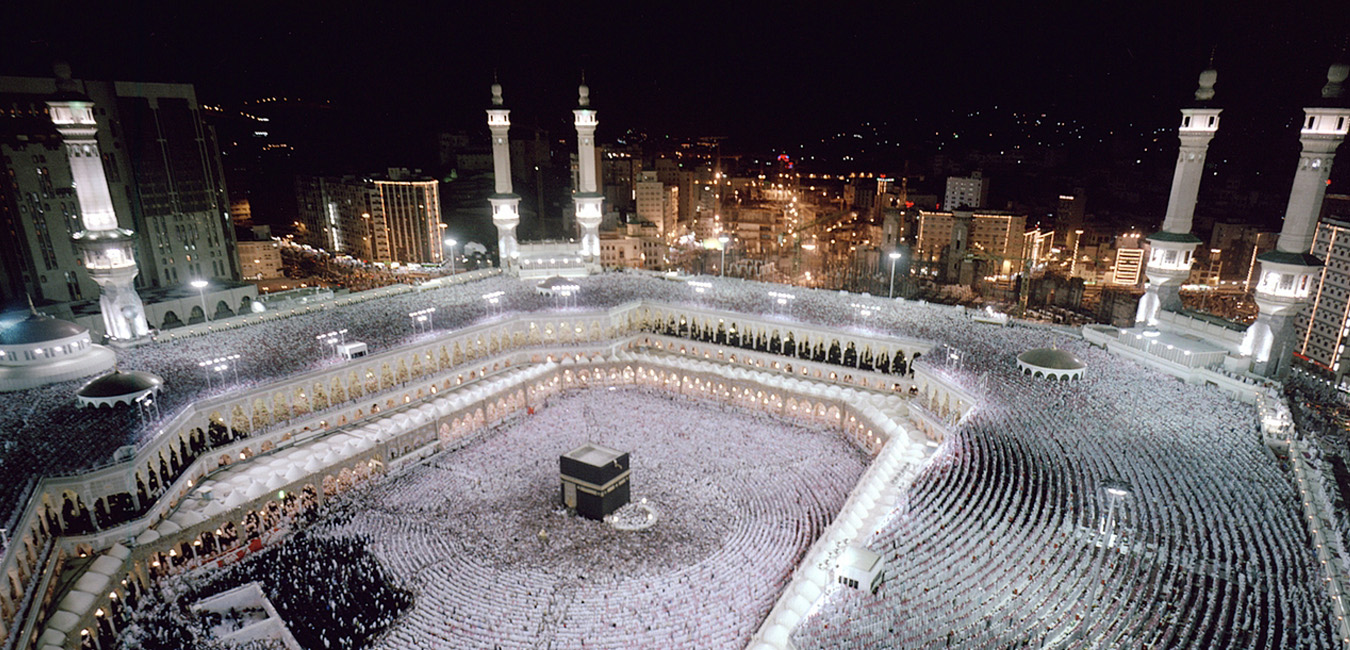
IS UMRAH OBLIGATORY?
Every deed falls under one of five categories:
- Fard (obligatory) – The one who does this is rewarded and the one who leaves it has sinned.
- Mustahabb (recommended) – The one who does this is rewarded and the one who leaves it has NOT sinned.
- Mubah (allowed) – The one who does it has no reward and the one who leaves it has no sin.
- Makrooh (disliked) – The one who leaves it is rewarded and the one who does it has not sinned.
- Haram (prohibited) – The one who leaves it is rewarded and the one who does it has sinned.
[The above are generally discussed under “Usool Al-Fiqh” (The Foundations of Jurisprudence)].
As mentioned before, Hajj is obligatory, or more appropriately, the FIRST Hajj of a mature person is obligatory. The ones after that are voluntary.
What about Umrah though? Is it recommended or obligatory? Well, most people seem to think that it is definitely recommended and not obligatory.
Actually, there is a dispute amongst the scholars as to whether the first Umrah of a person is obligatory or recommended. Imam Ibn Rushd (rahimahullah) has laid out the dispute in his book, Bidaayat Al-Mujtahid. [You may read that section of his book here.]
I don’t wish to dwell on the debate but I’d like to present some proofs that seem to indicate that Umrah might be obligatory. The reason for this is so that people take Umrah more seriously and go if they have a chance to do so, rather than unnecessarily delaying it.
1. Allah asks us to perform Hajj and Umrah for Him
وَأَتِمُّوا الْحَجَّ وَالْعُمْرَةَ لِلَّـهِ
And perform properly the Hajj and Umrah for Allah. [Surah Al-Baqarah (2) : 196]
2. Some narrations of the Hadeeth of Jibreel include Umrah along with Hajj
This hadeeth was mentioned above under the Obligation of Hajj. Some of its narrations mention Umrah as well.
وتحج البيت وتعتمر
“And perform Hajj to the House and do Umrah.”[Sahih Ibn Khuzaimah, Hadeeth No.1]
[Note: Shaikh Mustafa Azami, who checked the ahadeeth in this book, does not comment on the hadeeth except to say “refer to the hadeeth in Sahih Muslim” implying that he considers it authentic. Also, there is some debate over this addition.]
3. Umrah has been incorporated into Hajj until the Day of Judgment
عَنِ ابْنِ عَبَّاسٍ رَضِيَ اللّهُ عَنْهُمَا قَالَ: قَالَ رَسُولُ اللّهِ صلى الله عليه وسلم: هَذِهِ عُمْرَةٌ اسْتَمْتَعْنَا بِهَا، فَمَنْ لَمْ يَكُنْ عِنْدَهُ الْهَدْيُ فَلْيَحِلَّ الْحِلَّ كُلَّهُ، فَإِنَّ الْعُمْرَةَ قَدْ دَخَلَتْ فِي الْحَجِّ إِلَى يَوْمِ الْقِيَامَةِ
Ibn Abbas (radiallahu anhuma) reported the Messenger of Allah (sallallahu alaihi wasallam) as saying: This is the Umrah of which we have taken advantage. So he who has not the sacrificial animal with him should get out of the state of Ihraam completely, for Umrah has been incorporated in Hajj until the Day of Resurrection.”[Sahih Muslim, Hadeeth No. 2863]
Please note that the Prophet (sallallahu alaihi wasallam) had intended Hajj Ifrad (just Hajj) but he was ordered to do both Hajj and Umrah.
4. If Umrah is the Jihad of women and is obligatory on them, then it is more so for the men
عَنْ عَائِشَةَ ، قَالَتْ: قُلْتُ يَا رَسُولَ اللَّهِ عَلَى النِّسَاءِ جِهَادٌ؟ قَالَ: نَعَمْ. عَلَيْهِنَّ جِهَادٌ لاَ قِتَالَ فِيهِ: الْحَجُّ وَالْعُمْرَةُ
Aishah (radiallahu anha) narrated: “I said: ‘O Messenger of Allah. Is Jihad obligatory for women?’ He (sallallahu alaihi wasallam) said, “Yes. Upon them is a Jihad in which there is no fighting: Hajj and Umrah.””[Sunan Ibn Majah, Hadeeth No. 2901. Graded “sahih” (authentic) by Al-Albani. ]
5. Other narrations point to its possible obligation
عن أبِي رَزِينٍ قَالَ حَفْصٌ ، في حَدِيثهِ رَجُلٌ مِنْ بَنِي عَامِرٍ أَنَّهُ قَالَ: يَارَسُولَ الله إِنَّ أبِي شَيْخٌ كَبِيرٌ لاَ يَسْتَطِيعُ الْحَجَّ وَالْعُمْرَةَ وَلاَ الظَّعْنَ مَعاً قَال احْجُجْ عَنْ أبِيكَ وَاعْتَمِرْ
It was reported from Abu Razeen (radiallahu anhu) that he said: “O Messenger of Allah! My father is an old man who cannot perform Hajj, or Umrah, or (ride) a mount.” He (sallallahu alaihi wasallam) said: “Perform Hajj and Umrah on behalf of your father.”[Sunan Abee Dawood, Hadeeth no. 1810. Graded “sahih” (authentic) by Al-Albani.]
The Prophet (sallallahu alaihi wasallam) asked him to do BOTH Hajj and Umrah on behalf of his father.
عَنْ أَبِي وَائِلٍ ، قَالَ: قَالَ الصُّبَيُّ بْنُ مَعْبَدٍ كُنْتُ أَعْرَابِيًّا نَصْرَانِيًّا فَأَسْلَمْتُ فَكُنْتُ حَرِيصا عَلَى الْجِهَادِ فَوَجَدْتُ الْحَجَّ وَالْعُمْرَةَ مَكْتُوبَيْنِ عَلَيَّ فَأَتَيْتُ رَجُلاً مِنْ عَشِيرَتِي يُقَالُ لَهُ هُرَيْمُ بْنُ عَبْدِ اللَّهِ فَسَأَلْتُهُ فَقَالَ: اجْمَعْهُمَا ثُمَّ اذْبَحْ مَا اسْتَيْسَرَ مِنَ الْهَدْي فَأَهْلَلْتُ بِهِمَا فَلَمَّا أَتَيْتُ الْعُذَيْبَ لَقِيَنِي سَلْمَانُ بْنُ رَبِيعَةَ وَزَيْدُ بْنُ صُوْحَانَ وَأَنَا أُهِلُّ بِهِمَا فَقَالَ أَحَدُهُمَا لِلآخَرِ: مَا هذَا بِأَفْقَهَ مِنْ بَعِيرِهِ فَأَتَيْتُ عُمَرَ فَقُلْتُ: يَا أَمِيرَ الْمُوءْمِنِينَ إنِّي أَسْلَمْتُ وَأَنَا حَرِيصٌ عَلَى الْجِهَادِ وَإنِّي وَجَدْتُ الْحَجَّ وَالْعُمْرَةَ مَكْتُوبَيْنِ عَلَيَّ فَأَتَيْتُ هُرَيْمَ بْنَ عَبْدِ اللَّهِ فَقُلْتُ: يَا هَنَّاهُ إنِّي وَجَدْتُ الْحَجَّ وَالْعُمْرَةَ مَكْتُوبَيْنِ عَلَيَّ فَقَالَ: اجْمَعْهُمَا ثُمَّ اذْبَحْ مَا اسْتَيْسَرَ مِنَ الْهَدْيِ فَأَهْلَلْتُ بِهِمَا فَلَمَّا أَتَيْنَا الْعُذَيْبَ لَقِيَنِي سَلْمَانُ بنُ رَبِيعَةَ وَزَيْدُ بْنُ صُوحَانَ فَقَالَ أَحَدُهُمَا لِلآخَرِ: مَا هذَا بِأَفْقَهَ مِنْ بَعِيرِهِ فَقَالَ عُمَرُ: هُدِيتَ لِسُنَّةِ نَبِيِّكَ صلى الله عليه وسلّم.
It was narrated that Abu Wail said: “As-Subai ibn Mabad said: ‘I was a Christian Bedouin then I became a Muslim. I was keen to go for Jihad but I learned that Hajj and Umrah had been enjoined on me. I went to a man of my clan who was called Huraim ibn Abdullah and asked and he said: “Put them together, then slaughter whatever you can of the Hadi”. So I entered Ihram for both together, and when I came to al-Udhaib, I was met by Salman ibn Rabiah and Zaid ibn Suhan, while I was uttering the Talbiyah for both. One of them said to the other: “He does not understand more than his camel!” I came to Umar and said: “O Commander of the Believers! I have become Muslim and I am keen to go for jihad but I learned that Hajj and Umrah were enjoined on me, so I went to Huraim ibn Abdullah and said: ‘Hey you! I have learned that Hajj and Umrah have been enjoined on me.’ He said: ‘Put them together, then slaughter whatever you can of the Hadi.’ So I entered Ihram for both together, and when I came to Al-Udhaib, I was met by Salman ibn Rabiah and Zaid ibn Suhan, and one of them said to the other: “He does not understand more than his camel!””. Umar said: “You have been guided to the Sunnah of your Prophet.”[Sunan An-Nasai, Hadeeth no. 2720. Graded “sahih” by Al-Albani.]
[Note: The word “Sunnah” at the end of the hadeeth is used in its original meaning which is “the way”, which includes both obligatory and recommended acts.]
There are a few things to note in this hadeeth:
- As-Subai ibn Mabad (rahimahullah) tells Umar (radiallahu anhu) that he learnt that Hajj and Umrah were enjoined on him, yet Umar did not correct him, indicating that Umrah might be an obligation.
- Assuming ihraam for both Hajj and Umrah together is permissible and was done by Prophet Muhammad (sallallahu alaihi wasallam). It is called Hajj Al-Qiran. However, assuming ihram separately for them both (by doing Hajj At-Tamattu) is better and is the recommended type of Hajj.
- Please note the good character of As-Subai ibn Mabad. When informing Umar (radiallahu anhu) of the story, he does not mention which one of the two men made the comment about him not knowing more than his camel.
For those that wish to read more on this issue, here’s a helpful article.

CONDITIONS OF HAJJ
Unlike prayer, Hajj is not obligatory on every Muslim. For Hajj to be obligatory on someone, they have to fulfill the following conditions:
1. Islam
This is mandatory for every aspect of worship. This is because Allah will not accept a religion other than Islam, therefore the deeds of the kuffar (the disbelievers) are not accepted.
وَمَن يَبْتَغِ غَيْرَ الْإِسْلَامِ دِينًا فَلَن يُقْبَلَ مِنْهُ وَهُوَ فِي الْآخِرَةِ مِنَ الْخَاسِرِينَ
“And whoever seeks a religion other than Islam, it will never be accepted of him, and in the Hereafter he will be one of the losers.” [Surah Aal-Imraan (3) : 85]
وَالَّذِينَ كَذَّبُوا بِآيَاتِنَا وَلِقَاءِ الْآخِرَةِ حَبِطَتْ أَعْمَالُهُمْ ۚ هَلْ يُجْزَوْنَ إِلَّا مَا كَانُوا يَعْمَلُونَ
“Those who deny Our Ayaat (proofs, evidences, verses, lessons, signs, revelations, etc.) and the Meeting in the Hereafter (Day of Resurrection,), vain are their deeds. Do they expect to be rewarded with anything except what they used to do?” [Surah Al-Araaf (7) : 147]
مَا كَانَ لِلْمُشْرِكِينَ أَن يَعْمُرُوا مَسَاجِدَ اللَّـهِ شَاهِدِينَ عَلَىٰ أَنفُسِهِم بِالْكُفْرِ ۚ أُولَـٰئِكَ حَبِطَتْ أَعْمَالُهُمْ وَفِي النَّارِ هُمْ خَالِدُونَ
“It is not for the Mushrikoon (polytheists, idolaters, pagans, disbelievers in the Oneness of Allah), to maintain the Mosques of Allah (i.e. to pray and worship Allah therein, to look after their cleanliness and their building, etc.), while they witness against their ownselves of disbelief. The works of such are in vain and in Fire shall they abide.” [Surah At-Tawbah (9) : 17]
وَقَالَ الَّذِينَ لَا يَرْجُونَ لِقَاءَنَا لَوْلَا أُنزِلَ عَلَيْنَا الْمَلَائِكَةُ أَوْ نَرَىٰ رَبَّنَا ۗ لَقَدِ اسْتَكْبَرُوا فِي أَنفُسِهِمْ وَعَتَوْا عُتُوًّا كَبِيرًا
يَوْمَ يَرَوْنَ الْمَلَائِكَةَ لَا بُشْرَىٰ يَوْمَئِذٍ لِّلْمُجْرِمِينَ وَيَقُولُونَ حِجْرًا مَّحْجُورًا
وَقَدِمْنَا إِلَىٰ مَا عَمِلُوا مِنْ عَمَلٍ فَجَعَلْنَاهُ هَبَاءً مَّنثُورًا
“And those who expect not for a Meeting with Us (i.e. those who deny the Day of Resurrection and the life of the Hereafter), say: “Why are not the angels sent down to us, or why do we not see our Lord?” Indeed they think too highly of themselves, and are scornful with great pride. On the Day they will see the angels, no glad tidings will there be for the Mujrimoon (criminals, disbelievers, polytheists, sinners, etc.) that day. And they (angels) will say: “All kinds of glad tidings are forbidden for you,”. And We shall turn to whatever deeds they (disbelievers, polytheists, sinners, etc.) did, and We shall make such deeds as scattered floating particles of dust.” [Surah Al-Furqan (25) : 21-23]
قُلْ هَلْ نُنَبِّئُكُم بِالْأَخْسَرِينَ أَعْمَالًا
الَّذِينَ ضَلَّ سَعْيُهُمْ فِي الْحَيَاةِ الدُّنْيَا وَهُمْ يَحْسَبُونَ أَنَّهُمْ يُحْسِنُونَ صُنْعًا
أُولَـٰئِكَ الَّذِينَ كَفَرُوا بِآيَاتِ رَبِّهِمْ وَلِقَائِهِ فَحَبِطَتْ أَعْمَالُهُمْ فَلَا نُقِيمُ لَهُمْ يَوْمَ الْقِيَامَةِ وَزْنًا
ذَٰلِكَ جَزَاؤُهُمْ جَهَنَّمُ بِمَا كَفَرُوا وَاتَّخَذُوا آيَاتِي وَرُسُلِي هُزُوًا
“Say (O Muhammad): “Shall We tell you the greatest losers in respect of (their) deeds? Those whose efforts have been wasted in this life while they thought that they were acquiring good by their deeds! They are those who deny the Ayaat (proofs, evidences, verses, lessons, signs, revelations, etc.) of their Lord and the Meeting with Him (in the Hereafter).” So their works are in vain, and on the Day of Resurrection, We shall not give them any weight. That shall be their recompense, Hell; because they disbelieved and took My Ayaat (proofs, evidences, verses, lessons, signs, revelations, etc.) and My Messengers by way of jest and mockery.” [Surah Al-Kahf (18) : 103-106]
مَّثَلُ الَّذِينَ كَفَرُوا بِرَبِّهِمْ ۖ أَعْمَالُهُمْ كَرَمَادٍ اشْتَدَّتْ بِهِ الرِّيحُ فِي يَوْمٍ عَاصِفٍ ۖ لَّا يَقْدِرُونَ مِمَّا كَسَبُوا عَلَىٰ شَيْءٍ ۚ ذَٰلِكَ هُوَ الضَّلَالُ الْبَعِيدُ
“The parable of those who disbelieve in their Lord is that their works are as ashes, on which the wind blows furiously on a stormy day, they shall not be able to get aught of what they have earned. That is the straying, far away (from the Right Path).” [Surah Ibrahim (14) : 18]
وَالَّذِينَ كَفَرُوا أَعْمَالُهُمْ كَسَرَابٍ بِقِيعَةٍ يَحْسَبُهُ الظَّمْآنُ مَاءً حَتَّىٰ إِذَا جَاءَهُ لَمْ يَجِدْهُ شَيْئًا وَوَجَدَ اللَّـهَ عِندَهُ فَوَفَّاهُ حِسَابَهُ ۗ وَاللَّـهُ سَرِيعُ الْحِسَابِ
أَوْ كَظُلُمَاتٍ فِي بَحْرٍ لُّجِّيٍّ يَغْشَاهُ مَوْجٌ مِّن فَوْقِهِ مَوْجٌ مِّن فَوْقِهِ سَحَابٌ ۚ ظُلُمَاتٌ بَعْضُهَا فَوْقَ بَعْضٍ إِذَا أَخْرَجَ يَدَهُ لَمْ يَكَدْ يَرَاهَا ۗ وَمَن لَّمْ يَجْعَلِ اللَّـهُ لَهُ نُورًا فَمَا لَهُ مِن نُّورٍ
“As for those who disbelieve, their deeds are like a mirage in a desert. The thirsty one thinks it to be water, until he comes up to it, he finds it to be nothing, but he finds Allah with him, Who will pay him his due (Hell). And Allah is Swift in taking account. Or [the state of a disbeliever] is like the darkness in a vast deep sea, overwhelmed with a great wave topped by a great wave, topped by dark clouds, darkness, one above another, if a man stretches out his hand, he can hardly see it! And he for whom Allah has not appointed light, for him there is no light.” [Surah An-Nur (24) : 39-40]
عَنْ عَائِشَةَ، قَالَتْ قُلْتُ يَا رَسُولَ اللَّهِ ابْنُ جُدْعَانَ كَانَ فِي الْجَاهِلِيَّةِ يَصِلُ الرَّحِمَ وَيُطْعِمُ الْمِسْكِينَ فَهَلْ ذَاكَ نَافِعُهُ قَالَ : لاَ يَنْفَعُهُ إِنَّهُ لَمْ يَقُلْ يَوْمًا رَبِّ اغْفِرْ لِي خَطِيئَتِي يَوْمَ الدِّينِ
Aishah (radiallahu anha) reported: I said: “Messenger of Allah, in Jahiliyyah, the son of Judaan established the ties of relationship and fed the poor. Would that be of any avail to him?” He said: “It would be of no avail to him as he did not ever say: O my Lord, pardon my sins on the Day of Resurrection.” [Sahih Muslim, Hadeeth No. 416]
[Jahiliyyah is the pre-Islamic era and Abdullah ibn Judaan was a prominent member of society at that time.]
[Note: The disbelievers will still be held accountable in the hereafter for their actions. To understand this further, you may refer to this article.]
The disbelievers have been specifically prohibited from entering Masjid Al-Haram and doing Hajj.
يَا أَيُّهَا الَّذِينَ آمَنُوا إِنَّمَا الْمُشْرِكُونَ نَجَسٌ فَلَا يَقْرَبُوا الْمَسْجِدَ الْحَرَامَ بَعْدَ عَامِهِمْ هَـٰذَا ۚ وَإِنْ خِفْتُمْ عَيْلَةً فَسَوْفَ يُغْنِيكُمُ اللَّـهُ مِن فَضْلِهِ إِن شَاءَ ۚ إِنَّ اللَّـهَ عَلِيمٌ حَكِيمٌ
“O you who believe (in Allah’s Oneness and in His Messenger (Muhammad)! Verily, the Mushrikoon (polytheists, pagans, idolaters, disbelievers in the Oneness of Allah, and in the Message of Muhammad) are Najasun (impure). So let them not come near Al-Masjid-al-Haram (at Makkah) after this year, and if you fear poverty, Allah will enrich you if He wills, out of His Bounty. Surely, Allah is All-Knowing, All-Wise.” [Surah At-Tawbah (9) : 28]
[Note: This impurity is due to their shirk (worshipping others besides Allah), so it is an impurity of the heart. As for the impurity of the body, then this is not what is intended.]
عن أَبَي هُرَيْرَةَ، قَالَ بَعَثَنِي أَبُو بَكْرٍ فِي تِلْكَ الْحَجَّةِ فِي مُؤَذِّنِينَ يَوْمَ النَّحْرِ نُؤَذِّنُ بِمِنًى أَنْ لاَ يَحُجَّ بَعْدَ الْعَامِ مُشْرِكٌ، وَلاَ يَطُوفَ بِالْبَيْتِ عُرْيَانٌ. قَالَ حُمَيْدُ بْنُ عَبْدِ الرَّحْمَنِ ثُمَّ أَرْدَفَ رَسُولُ اللَّهِ صلى الله عليه وسلم عَلِيًّا، فَأَمَرَهُ أَنْ يُؤَذِّنَ بِبَرَاءَةَ قَالَ أَبُو هُرَيْرَةَ فَأَذَّنَ مَعَنَا عَلِيٌّ فِي أَهْلِ مِنًى يَوْمَ النَّحْرِ لاَ يَحُجُّ بَعْدَ الْعَامِ مُشْرِكٌ، وَلاَ يَطُوفُ بِالْبَيْتِ عُرْيَانٌ
Narrated Abu Hurairah (radiallahu anhu): On the Day of Nahr (10th of Dhul-Hijjah, in the year prior to the last Hajj of the Prophet (sallallahu alaihi wasallam) when Abu Bakr was the leader of the pilgrims in that Hajj) Abu Bakr sent me along with other announcers to Mina to make a public announcement: “No pagan is allowed to perform Hajj after this year and no naked person is allowed to perform the Tawaf around the Kabah. Then Allah’s Messenger (sallallahu alaihi wasallam) sent Ali to read out the Surat Baraa (At-Taubah) to the people; so he made the announcement along with us on the day of Nahr in Mina: “No pagan is allowed to perform Hajj after this year and no naked person is allowed to perform the Tawaf around the Kabah.”[Sahih Al-Bukhari, Volume 1, Hadeeth No. 365]
Allah rewards the disbelievers for their actions in this world.
عَنْ أَنَسِ بْنِ مَالِكٍ، أَنَّهُ حَدَّثَ عَنْ رَسُولِ اللَّهِ صلى الله عليه وسلم : إِنَّ الْكَافِرَ إِذَا عَمِلَ حَسَنَةً أُطْعِمَ بِهَا طُعْمَةً مِنَ الدُّنْيَا وَأَمَّا الْمُؤْمِنُ فَإِنَّ اللَّهَ يَدَّخِرُ لَهُ حَسَنَاتِهِ فِي الآخِرَةِ وَيُعْقِبُهُ رِزْقًا فِي الدُّنْيَا عَلَى طَاعَتِهِ
Anas ibn Malik (radiallahu anhu) reported that Allah’s Messenger (sallallahu alaihi wasallam) thus told him: “When a disbeliever does good he is made to taste its reward in this world. And so far as the believer is concerned, Allah stores (the reward) of his virtues for the Hereafter and provides him sustenance in accordance with his obedience to Him.” [Sahih Muslim, Hadeeth No. 6740]
عَنْ أَنَسِ بْنِ مَالِكٍ، قَالَ قَالَ رَسُولُ اللَّهِ صلى الله عليه وسلم : إِنَّ اللَّهَ لاَ يَظْلِمُ مُؤْمِنًا حَسَنَةً يُعْطَى بِهَا فِي الدُّنْيَا وَيُجْزَى بِهَا فِي الآخِرَةِ وَأَمَّا الْكَافِرُ فَيُطْعَمُ بِحَسَنَاتِ مَا عَمِلَ بِهَا لِلَّهِ فِي الدُّنْيَا حَتَّى إِذَا أَفْضَى إِلَى الآخِرَةِ لَمْ تَكُنْ لَهُ حَسَنَةٌ يُجْزَى بِهَا
Anas ibn Malik (radiallahu anhu) reported that Allah’s Messenger (sallallahu alaihi wasallam) said: “Allah does not wrong a believer a good deed because he is given blessings for it in this world and will be rewarded for it in the Hereafter. But the disbeliever is given in the world the reward for good deeds, he has performed for the sake of Allah and when he comes to the Hereafter, there is no good deed for which he can be rewarded”. [Sahih Muslim, Hadeeth No. 6739]
Now, someone might ask the following questions:
- “Why isn’t the deed of a disbeliever accepted? Why does there need to be Islam?”
This is because we were created to worship Allah and He has already warned us that if we do not worship Him, our deeds will not get accepted.
I’ve already written about this on my older Greatest Month blog. You may read about it here.
- “What about the good disbelievers? Why aren’t their deeds accepted?”
This is a very common question. People always ask why “bad” Muslims get to go to Paradise eventually but “good” non-Muslims don’t. I’ve written about this topic before as well and you may read the article here.
- “What if the disbeliever never heard of Islam?”
Well, he would then get his test in the Hereafter itself. This article discusses this issue.
As for those who have non-Muslim families and the like, I would advise you to do a lot of dua (supplication) for them and keep calling them to Islam with wisdom and patience.
2. Puberty
Children are not held accountable for their actions until they attain puberty.
عَنْ عَائِشَةَ، أَنَّ رَسُولَ اللَّهِ ـ صلى الله عليه وسلم ـ قَالَ : رُفِعَ الْقَلَمُ عَنْ ثَلاَثَةٍ عَنِ النَّائِمِ حَتَّى يَسْتَيْقِظَ وَعَنِ الصَّغِيرِ حَتَّى يَكْبَرَ وَعَنِ الْمَجْنُونِ حَتَّى يَعْقِلَ أَوْ يُفِيقَ
It was narrated from Aishah (radiallahu anha) that the Messenger of Allah (sallallahu alaihi wasallam) said. “The Pen has been lifted from three: from the sleeping person until he awakens, from the minor until he grows up, and from the insane person until he comes to his senses.” [Sunan Ibn Majah, Hadeeth No. 2041. Graded “sahih” by Al-Albani.]
عَنْ اِبْنِ عَبَّاسٍ قَالَ رَسُولُ اَللَّهِ - صلى الله عليه وسلم: أيما صبيٍّ حجَّ ، ثم بلغ الحِنْثَ ، فعليه أن يحجَّ حجَّةً أخرى ، و أيما أعرابيٍّ حجَّ ثم هاجر فعليه أن يحجَّ حجةً أخرى ، و أيما عبدٍ حجَّ ثم أُعتِقَ ، فعليه أن يحُجَّ حجَّةً أُخرى
Ibn Abbas (radiallahu anhuma) narrated: The Messenger of Allah (sallallahu alaihi wasallam) said: “Any child that performs Hajj, then reaches puberty, then upon him is another Hajj. And any bedouin that performs Hajj, then does migrates then upon him is another Hajj. And any slave that performs Hajj, then is free, then upon him is another Hajj.”[Sahih Al-Jaami, Hadeeth No. 2729]
[Note: Imam Ibn Khuzaimah (rahimahullah) points out in his Sahih under Hadeeth No. 3050 (which mentions the same thing as above with the exception of the slave) that the issue of bedouins repeating their Hajj had to do with before the Conquest of Makkah. And Allah knows Better.]
However, if a child does do Hajj, it will count as a voluntary one for him and he will get rewarded for it as well as his parents. This is a good reason for parents to encourage their children to go to Hajj with them.
عَنِ ابْنِ عَبَّاسٍ، قَالَ رَفَعَتِ امْرَأَةٌ صَبِيًّا لَهَا فَقَالَتْ يَا رَسُولَ اللَّهِ أَلِهَذَا حَجٌّ قَالَ : نَعَمْ وَلَكِ أَجْرٌ
Ibn Abbas (radiallahu anhuma) reported: A woman lifted up her child and said: Messenger of Allah, would the child be credited with having performed the Hajj? Thereupon he (sallallahu alaihi wasallam) said: Yes, and there would be a reward for you. [Sahih Muslim, Hadeeth No. 3092]
One could ask: What are the signs of puberty?
Well, there are more than one. This article sheds light on this issue.
3. Sanity
An insane person is not responsible for his actions so he is not obliged to do Hajj.
عَنْ عَائِشَةَ، أَنَّ رَسُولَ اللَّهِ ـ صلى الله عليه وسلم ـ قَالَ : رُفِعَ الْقَلَمُ عَنْ ثَلاَثَةٍ عَنِ النَّائِمِ حَتَّى يَسْتَيْقِظَ وَعَنِ الصَّغِيرِ حَتَّى يَكْبَرَ وَعَنِ الْمَجْنُونِ حَتَّى يَعْقِلَ أَوْ يُفِيقَ
It was narrated from Aishah (radiallahu anha) that the Messenger of Allah (sallallahu alaihi wasallam) said. “The Pen has been lifted from three: from the sleeping person until he awakens, from the minor until he grows up, and from the insane person until he comes to his senses.”[Sunan Ibn Majah, Hadeeth No. 2041. Graded “sahih” by Al-Albani.]
4. Freedom
This means that he should not be a slave. [Note: Slaves and servants are two different things.]
عَنْ اِبْنِ عَبَّاسٍ قَالَ رَسُولُ اَللَّهِ - صلى الله عليه وسلم: أيما صبيٍّ حجَّ ، ثم بلغ الحِنْثَ ، فعليه أن يحجَّ حجَّةً أخرى ، و أيما أعرابيٍّ حجَّ ثم هاجر فعليه أن يحجَّ حجةً أخرى ، و أيما عبدٍ حجَّ ثم أُعتِقَ ، فعليه أن يحُجَّ حجَّةً أُخرى
Ibn Abbas (radiallahu anhuma) narrated: The Messenger of Allah (sallallahu alaihi wasallam) said: “Any child that performs Hajj, then reaches puberty, then upon him is another Hajj. And any bedouin that performs Hajj, then does migrates then upon him is another Hajj. And any slave that performs Hajj, then is free, then upon him is another Hajj.” [Sahih Al-Jaami, Hadeeth No. 2729]
5. Ability
One should have the ability to do Hajj. Ability means both financial and physical ability.
وَلِلَّـهِ عَلَى النَّاسِ حِجُّ الْبَيْتِ مَنِ اسْتَطَاعَ إِلَيْهِ سَبِيلًا ۚ وَمَن كَفَرَ فَإِنَّ اللَّـهَ غَنِيٌّ عَنِ الْعَالَمِينَ
And Hajj (pilgrimage to Makkah) to the House (Kabah) is a duty that mankind owes to Allah, those who can afford the expenses (for one’s conveyance, provision and residence); and whoever disbelieves [i.e. denies Hajj (pilgrimage to Makkah), then he is a disbeliever of Allah], then Allah stands not in need of any of the Alameen (mankind and jinns).” [Surah Aal-Imran (3) : 97]
The hadeeth of the bedouin mentioned earlier is also proof for this point:
قَالَ: وَزَعَمَ رَسُولُكَ أَنَّ عَلَيْنَا حَجَّ الْبَيْتِ مَنِ اسْتَطَاعَ إِلَيْهِ سَبِيلاً. قَالَ: صَدَقَ
He (the bedouin) said: Your messenger also told us that Hajj to the House had been made obligatory for him who is able to undertake the journey to it. He (the Prophet) said: Yes. [Sahih Muslim, Hadeeth No. 9. The full text of this hadeeth was mentioned earlier.]
Yet another proof for this can be found in the Hadeeth of Jibreel (mentioned earlier):
وَقَالَ: يَا مُحَمَّدُ! أَخْبِرْنِي عَنِ الإِسْلاَمِ؟. فَقَالَ رَسُولُ اللّهِ صلى الله عليه وسلم: الإِسْلاَمُ أَنْ تَشْهَدَ أَنْ لاَ إِلهَ إِلاَّ الله وَأَنَّ مُحَمَّدا رَسُولُ اللّهِ، وَتُقِيمَ الصَّلاَةَ، وَتُؤْتِي الزَّكَاةَ، وَتَصُومَ رَمَضَانَ، وَتَحُجَّ الْبَيْتَ، إِنِ اسْتَطَعْتَ إِلَيْهِ سَبِيلاً. قَالَ: صَدَقْتَ
And he said: O Muhammad, tell me about Islam. The Messenger of Allah (sallallahu alaihi wasallam) said: Islam is to testify that there is no deity worthy of worship but Allah and Muhammad is the Messenger of Allah, to establish the prayer, to pay the zakah, to fast in Ramadan, and to perform the Hajj to the House if you were able to do so.” He said: You have spoken rightly. [Sahih Muslim, Hadeeth no. 1. The full text of this hadeeth was also mentioned earlier.]
The issue of ability is a vast one which includes the matter of debts. Therefore, it is imperative for a Muslim to check whether he is falls under this condition or not. Many seem to believe that they lack the ability even though in reality they do not.
This article illustrates various scenarios.
6. Mahram (for women)
In order for a woman to go on a journey, she needs to go with her husband or a mahram. A mahram is a male relative who is permanently forbidden for her in marriage like her father, brother, father-in-law, son-in-law, stepfather (if his marriage to her mother was consummated), stepson, brothers’ and sisters’ sons (i.e. nephews), etc. This article gives a detailed overview as to who a woman’s mahrams are.
[Please note that husband’s brothers, sister’s husbands and aunt’s husbands are NOT mahrams, not even “temporarily”.]
Here’s a nice mind map of this issue:
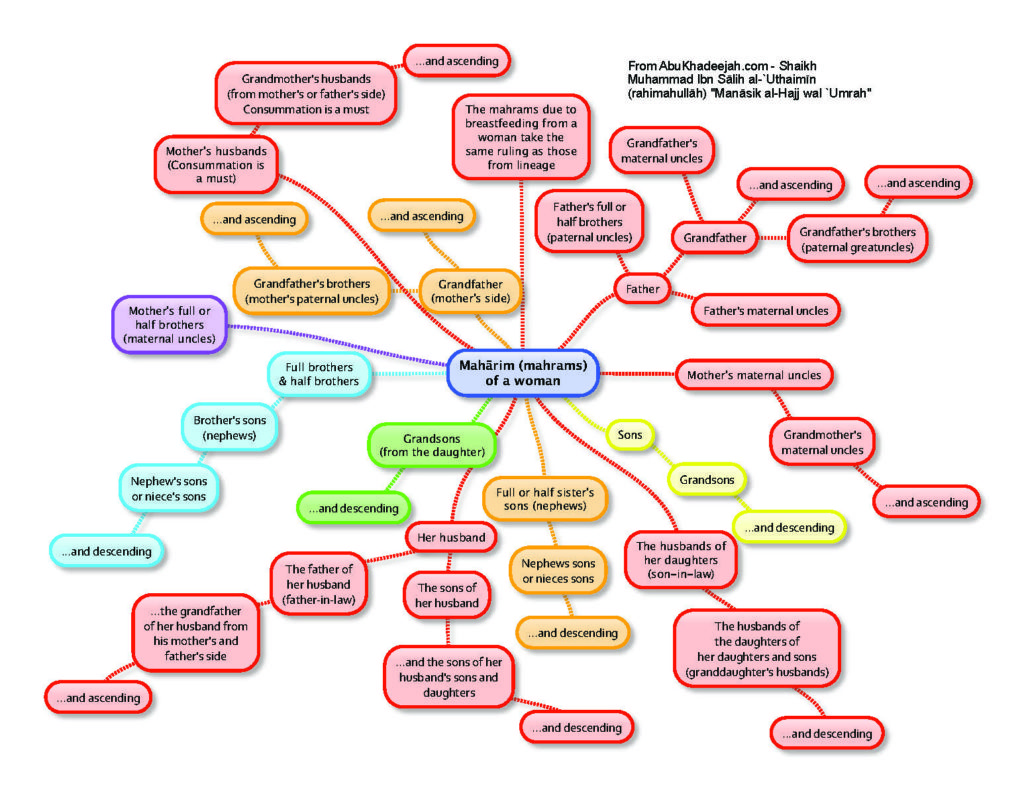
If a woman has no mahram to go to Hajj or her mahrams cannot go with her, she is not obliged to do Hajj.
عَنْ أَبِي هُرَيْرَةَ، عَنِ النَّبِيِّ صلى الله عليه وسلم قَالَ :لاَ يَحِلُّ لاِمْرَأَةٍ تُؤْمِنُ بِاللَّهِ وَالْيَوْمِ الآخِرِ تُسَافِرُ مَسِيرَةَ يَوْمٍ إِلاَّ مَعَ ذِي مَحْرَمٍ
Abu Hurairah (radiallahu anhu) reported Allah’s Messenger (sallallahu alaihi wasallam) as saying: “It is not lawful for a woman who believes in Allah and the Last Day to undertake a day’s journey except in the company of a Mahram.” [Sahih Muslim, Hadeeth No. 3105]
عَنْ ابْنَ عَبَّاسٍ، يَقُولُ سَمِعْتُ النَّبِيَّ صلى الله عليه وسلم يَخْطُبُ يَقُولُ : لاَ يَخْلُوَنَّ رَجُلٌ بِامْرَأَةٍ إِلاَّ وَمَعَهَا ذُو مَحْرَمٍ وَلاَ تُسَافِرِ الْمَرْأَةُ إِلاَّ مَعَ ذِي مَحْرَمٍ . فَقَامَ رَجُلٌ فَقَالَ يَا رَسُولَ اللَّهِ إِنَّ امْرَأَتِي خَرَجَتْ حَاجَّةً وَإِنِّي اكْتُتِبْتُ فِي غَزْوَةِ كَذَا وَكَذَا . قَالَ : انْطَلِقْ فَحُجَّ مَعَ امْرَأَتِكَ
Ibn Abbas (radiallahu anhuma) reported: I heard Allah’s Messenger (sallallahu alaihi wasallam) delivering a sermon and making this observation: “No person should be alone with a woman except when there is a Mahram with her, and the woman should not undertake journey except with a Mahram.” A person stood up and said: Allah’s Messenger, my wife has set out for pilgrimage, whereas I am enlisted to fight in such and such battle, whereupon he said: “You go and perform Hajj with your wife.” [Sahih Muslim, Hadeeth No. 3110]
What if a woman does Haj without one? Well, firstly, there is a small difference of opinion over whether she can go for her first (obligatory) Hajj without one. Many scholars believe that she cannot do so and the hadeeth above about the man and his wife seems to strongly support this view. According to them, if she does do Hajj without a mahram, her Hajj is valid but sinful.
Unfortunately, many sisters are careless of this fact, going on journeys alone despite the stern warning against it. They even go to Hajj alone and then claim that some scholars had this view. Unfortunately, these are the very same people which, if you tell them about another minority opinion (in another area), they would reject it because it was only a few scholars that had that view!
To the sisters who really want to do Hajj and do not have a mahram, my advice would be not to go to Hajj until you have one. If you are in the position where you might never have one, I would advise you to be patient and still not go for Hajj. Why not? Because perhaps you will get more reward by leaving of the sin (of traveling alone) than going to Hajj without a mahram.
This is a concept that many people do not understand: that leaving a sin could bring in more reward than doing a good deed. This is because many people do not understand what ibaadah (worship) is to begin with. The whole point of doing acts of worship like Hajj is to please Allah and draw closer to Him. We can only please Him with acts that He has permittedو not that which He has prohibited. When one understands this, they will understand why not going to Hajj without a mahram is really the better solution.
A final note: A woman in her iddah (waiting period after her husband’s death) is not allowed to perform Hajj. This article discusses the matter further.
Some more issues regarding the conditions of Hajj are discussed here.

ADVICE TO THOSE WHO DELAY THEIR HAJJ
There are many people who unnecessarily delay Hajj although they have the means and the ability to do it. This is contrary to the advice of the Prophet (sallallahu alaihi wasallam).
Unfortunately, this is the case with many people today. They prefer the dunya (worldly life) over the akhirah (hereafter). Yet, Allah has repeatedly informed us that the life of this world has no value and ordered us to work for the hereafter.
اعْلَمُوا أَنَّمَا الْحَيَاةُ الدُّنْيَا لَعِبٌ وَلَهْوٌ وَزِينَةٌ وَتَفَاخُرٌ بَيْنَكُمْ وَتَكَاثُرٌ فِي الْأَمْوَالِ وَالْأَوْلَادِ ۖ كَمَثَلِ غَيْثٍ أَعْجَبَ الْكُفَّارَ نَبَاتُهُ ثُمَّ يَهِيجُ فَتَرَاهُ مُصْفَرًّا ثُمَّ يَكُونُ حُطَامًا ۖ وَفِي الْآخِرَةِ عَذَابٌ شَدِيدٌ وَمَغْفِرَةٌ مِّنَ اللَّـهِ وَرِضْوَانٌ ۚ وَمَا الْحَيَاةُ الدُّنْيَا إِلَّا مَتَاعُ الْغُرُورِ
سَابِقُوا إِلَىٰ مَغْفِرَةٍ مِّن رَّبِّكُمْ وَجَنَّةٍ عَرْضُهَا كَعَرْضِ السَّمَاءِ وَالْأَرْضِ أُعِدَّتْ لِلَّذِينَ آمَنُوا بِاللَّـهِ وَرُسُلِهِ ۚ ذَٰلِكَ فَضْلُ اللَّـهِ يُؤْتِيهِ مَن يَشَاءُ ۚ وَاللَّـهُ ذُو الْفَضْلِ الْعَظِيمِ
“Know that the life of this world is only play and amusement, pomp and mutual boasting among you, and rivalry in respect of wealth and children, as the likeness of vegetation after rain, thereof the growth is pleasing to the tiller; afterwards it dries up and you see it turning yellow; then it becomes straw. But in the Hereafter (there is) a severe torment (for the disbelievers, evil-doers), and (there is) Forgiveness from Allah and (His) Good Pleasure (for the believers, good-doers), whereas the life of this world is only a deceiving enjoyment. Race one with another in hastening towards Forgiveness from your Lord, and towards Paradise, the width whereof is as the width of heaven and earth, prepared for those who believe in Allah and His Messengers. That is the Grace of Allah which He bestows on whom He pleases. And Allah is the Owner of Great Bounty.” [Surah Al-Hadeed (57) : 20-21]
So, every Muslim should focus on what matters i.e. the Pleasure of Allah and the Hereafter.
3. They think you need to have a lot of knowledge before you go or consider it too difficult
Some people think that going to Hajj requires one to be very knowledgeable or that they need to know Arabic first! Some also find the stages to be very confusing and difficult.
Firstly, one does not need to have a lot of knowledge to go to Hajj. You just need to know about the acts of Hajj which you need to perform. This can be done by taking a Hajj course (such as this one).
Secondly, knowing Arabic is not a requirement. Yes, there are duas (supplications) to be said at specific times and they are recited in Arabic. However, a person could simply copy them down in a notebook (along with the translation) and recite from there. There is no memorisation required, unlike in prayer, where duas do need to be memorised.
Thirdly, Hajj is actually easier than prayer as no memorisation is required. You are on your own whilst praying but not in Hajj. You can always pick up the phone to consult a person of knowledge.
Also, one could also go to Umrah first. This would help them in visualising the acts of Hajj.
4. They consider themselves to be too sinful and want to become perfect first
This is a problem that many people have. They consider themselves too sinful to go to Hajj. They think that if they go for Hajj at present, they will be required to become perfect after it, and they would not be able to do that and so their Hajj would be a failure. They think that they need to become perfect and THEN go for Hajj.
Subhan Allah, none of us will ever be perfect, because only Allah is perfect! Also, there is no requirement that one has to be amazing after Hajj. Even if a person has many sins after Hajj, he would have at least completed one of the pillars of Islam, and therefore would be less sinful than before.
Also, nobody is “too sinful” to go for Hajj. Allah has invited the people to go for Hajj and He has invited us to always ask for forgiveness for our sins, so we need to continually ask Allah for forgiveness and keep doing good deeds.
If one truly wishes to improve, then going to Hajj is one of the best solutions because it will HELP one to improve. Good deeds cause iman (faith) to increase which causes one to do more good deeds. So a person who goes for Hajj would feel an increase in iman and that would help him to decrease sinning.
5. They are scared of crowds
This is an issue that many people face especially those that suffer from a fear of crowds.
The solution for this is to ask Allah for help and then take some steps which would alleviate this issue. For example, a person could do tawaf on the middle floor instead of the ground floor, as it is less crowded there.
6. They think it needs more money and planning than it really does
Many people want their Hajj to be very grand but this is not reasonable. One needs to plan properly but not overdo it. Many good Hajj packages are available at very reasonable prices.
Here is an excellent article about this issue.
Still not convinced about going to Hajj?
Okay, let me try something else:
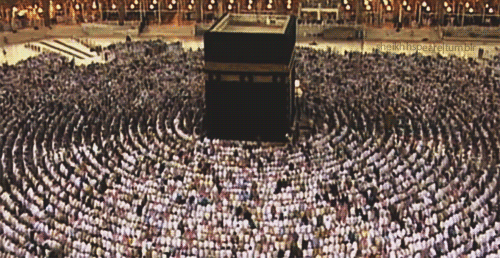
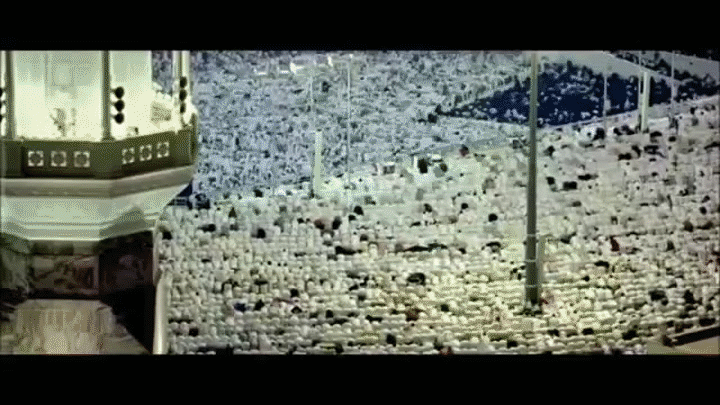
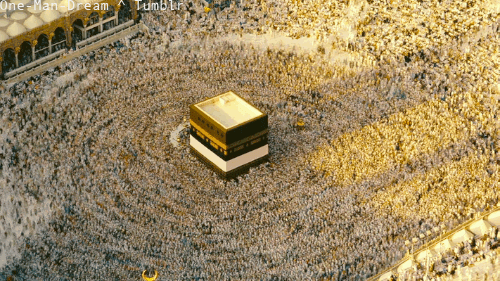
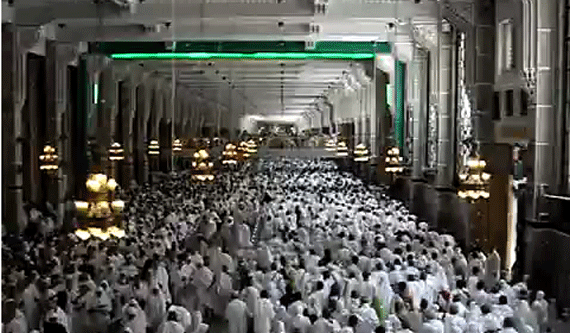
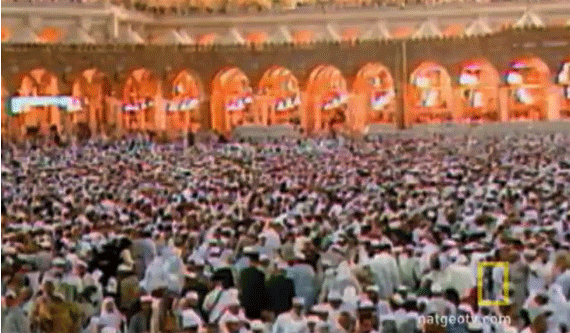
Beautiful, isn’t it? Now, please start planning your Hajj. Here’s what you need to do:
-
Dua (Supplication)

2. Start Saving
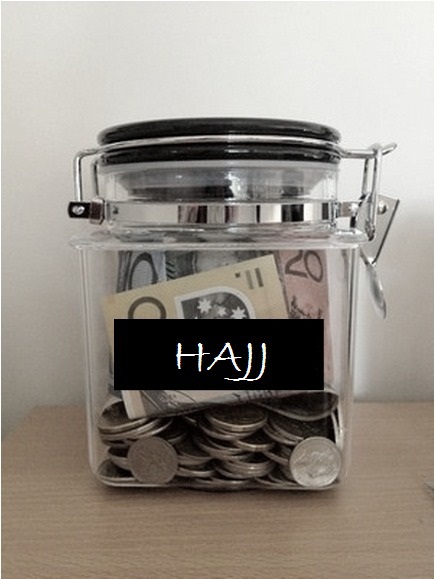
Remember this money spent towards Hajj and Umrah will bring in many rewards.
عَنِ الأَسْوَدِ، قَالاَ قَالَتْ عَائِشَةُ ـ رضى الله عنها ـ يَا رَسُولَ اللَّهِ يَصْدُرُ النَّاسُ بِنُسُكَيْنِ وَأَصْدُرُ بِنُسُكٍ فَقِيلَ لَهَا : انْتَظِرِي، فَإِذَا طَهُرْتِ فَاخْرُجِي إِلَى التَّنْعِيمِ، فَأَهِلِّي ثُمَّ ائْتِينَا بِمَكَانِ كَذَا، وَلَكِنَّهَا عَلَى قَدْرِ نَفَقَتِكِ، أَوْ نَصَبِكِ
Narrated Al-Aswad: That Aishah (radiallahu anha) said, “O Allah’s Messenger! The people are returning after performing the two Nusuks (i.e. Hajj and Umrah) but I am returning with one only?” He (sallallahu alaihi wasallam) said, “Wait till you become clean from your menses and then go to At-Tanim, assume Ihram (and after performing Umrah) join us at such-and-such a place. But it (i.e. the reward of Umrah) is according to your expenses or the hardship (which you will undergo while performing it). [Sahih Al-Bukhari, Volume 3, Hadeeth No. 15]
3. For women – Start buttering up your mahrams
Your mahram isn’t taking you to Hajj? How about showing him some:
